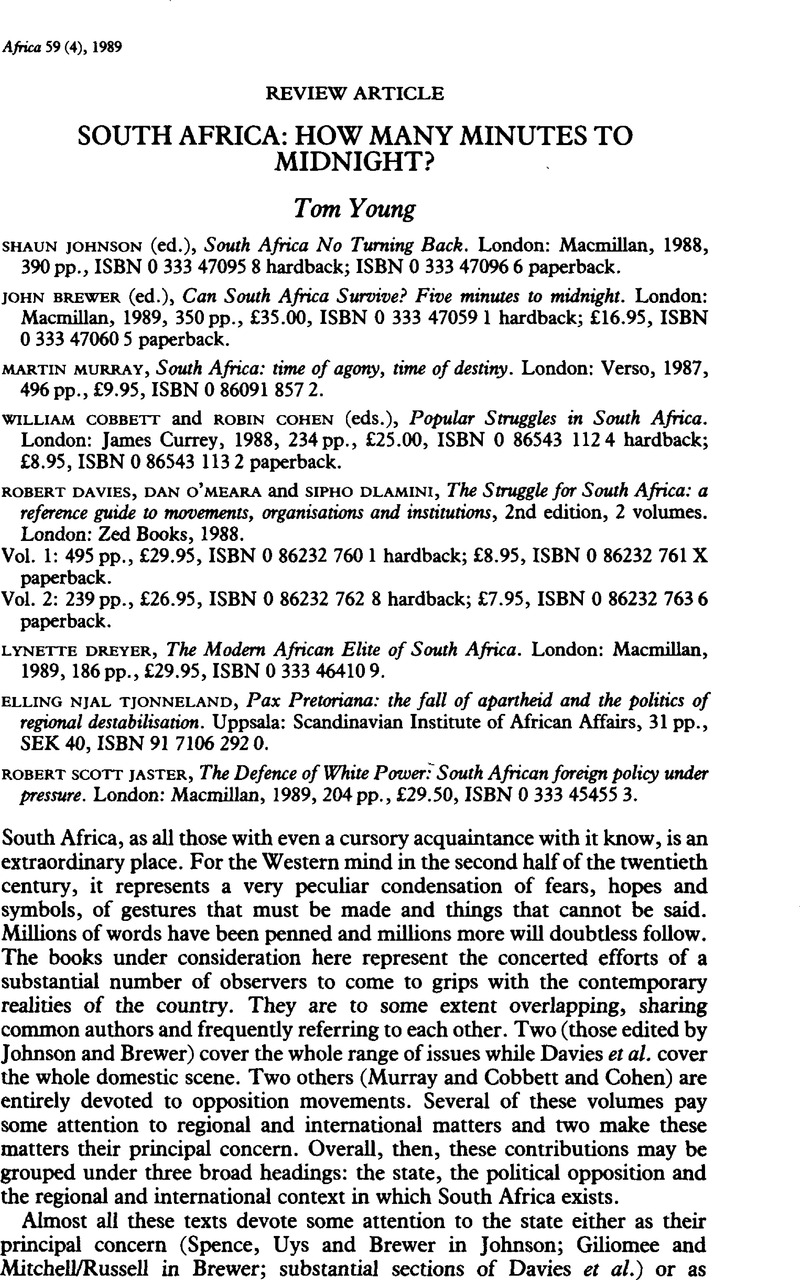No CrossRef data available.
Published online by Cambridge University Press: 07 December 2011

1 Pace Tjonneland's rather silly remark ‘that it is difficult to study policy-making in a closed society and militarised state’ (p. 19), what has to be explained is why it has still been possible to produce much better political science about much more closed societies. Jaster suggests, not implausibly, that the Botha government has been more open than previous South African governments (p. 25).
2 For a detailed though local example of this, see Davies, W. J., ‘The development administration system in Region D’, (Appendix 4 of Black, P. A. et al. (eds.), Industrial Development Strategy for Region D. Grahamstown: Rhodes University, 1987.Google Scholar
3 See Keenan's very pertinent remarks in Cobbett and Cohen (p. 136 and footnote 5 of his text).
4 Where else but in relation to South Africa can moral totalitarianism be presented as an academic virtue?
5 Geldenhuys, D., The Diplomacy of Isolation: South Africa's foreign policy making. Johannesburg: Macmillan, 1984.CrossRefGoogle Scholar
6 See Moore, J. D. L., South Africa and Nuclear Proliferation. London: Macmillan, 1987.CrossRefGoogle Scholar
7 For a theoretical discussion of some of these issues see Hindess, B., Politics and Class Analysis. Oxford: Basil Blackwell, 1987.Google Scholar
8 Sadly, these features are not unique to South Africa. One is reminded of Leroy Vail's remark, “The widely-held assumption that “tribalism” would soon disappear, coupled with the moral opprobrium associated with it as a topic of study, meant that many academics had tended to shy away from it, apprehensive lest such studies undermine officially supported goals of national unity and “national-building” by succouring parochialism’. See Vail, (ed.), The Creation of Tribalism in Southern Africa. London: James Currey, 1989, p. xi.Google Scholar
9 See Legassick, M., ‘South Africa in Crisis: what route to democracy?’ (African Affairs 84 (1985), pp. 587–603)CrossRefGoogle Scholar See my comments in African Affairs 85 (1986), pp. 295–7.CrossRefGoogle Scholar
10 Dunn, J., The Political Thought of John Locke. Cambridge: Cambridge University Press, 1969, p. 241.CrossRefGoogle Scholar